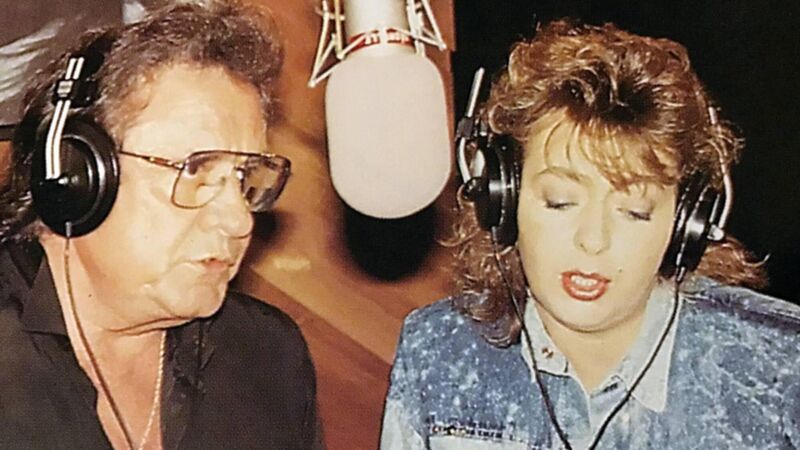Sandy Kelly: 'There was a loneliness about Johnny Cash'

Sandy Kelly in the recording studio with Johnny Cash. (Image courtesy of Sandy Kelly)
Sandy Kelly’s new memoir, In My Own Words, brims with joy and heartbreak. But one of its most striking passages begins with the County Sligo singer, perhaps best known for her chart-topping 1989 interpretation of Patsy Cline’s Crazy, at home “peeling vegetables for the stew” when the phone rings. It’s Reba Cash – sister of Johnny. Her brother is due on stage at the Olympia Theatre in Dublin in a few hours. “Johnny wants you to get here to sing on tonight’s show – so you better get here!”
Kelly was at her house in the Sligo townland of Carrowgobbadagh – a near three-hour drive from the Olympia. But you don’t say no when Johnny Cash asks you to sing with him. She dropped everything, including the stew, and hastened to Dublin. Backstage at the Olympia, she noticed the stage door open and “in walked Bono and the rest of U2”.




